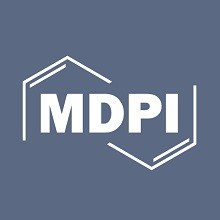
مقاله انگلیسی چارچوبی استراتژیک برای توسعه رهبری تحول آفرین
Abstract
Introduction
Literature Review
Methodology
Data Analysis and Results
Discussion of the Results (TISM Model)
Conclusions
Limitations and Scope for Future Research
Funding
Acknowledgments
References
Abstract
Project managers’ leadership has a direct and an indirect effect on project success. Extant literature has established that transformational leadership style positively affects project success in a major way. The main aim of this research is to understand the variables that positively affects transformational leadership development and their interrelationships in megaprojects. The Total Interpretive Structural Model (TISM) methodology is adopted to propose a framework, and Impact Matrix Cross-Reference Multiplication Applied to a Classification (MICMAC) approach is used to examine the strategic nature of the enablers. The research shows that there exists a group of enablers having a high driving power and low dependence, requiring maximum attention and of strategic importance, while another group consists of those variables that have high dependence and are resultant actions. Furthermore, the model explains the relationships among each pair of variables. Organisations dealing in megaprojects would be the major beneficiaries of this study. Policy makers in these organisations would explicitly understand the variables and their interrelationships that needs attention for transformational leadership development. This would help them to prioritize their efforts and implement suitable strategies to focus on the most important variables for developing transformational leaders ultimately leading to project success.
Introduction
Megaprojects can be defined as “a transformational project of over US$ 1 billion cost proposed by public or private sectors, providing assets that will last for decades and have large impact on societies” [1,2]. In general, “Megaprojects are characterized as endeavors, which are hard to manage, bring in high amounts of uncertainty, and face difficulties in delivering what they have originally planned to” [3,4]. Megaprojects are unlike normal or regular projects because of the great difference in complexity, strategy, impact and stakeholders [1]. Hence, understanding project success and factors that contribute to project success is quite crucial in the context of megaprojects. Megaprojects have been researched in the Western and American continents, but are under-researched elsewhere, and having more research from other countries to understand management characteristics and practices in the light of megaprojects is very much encouraged.
